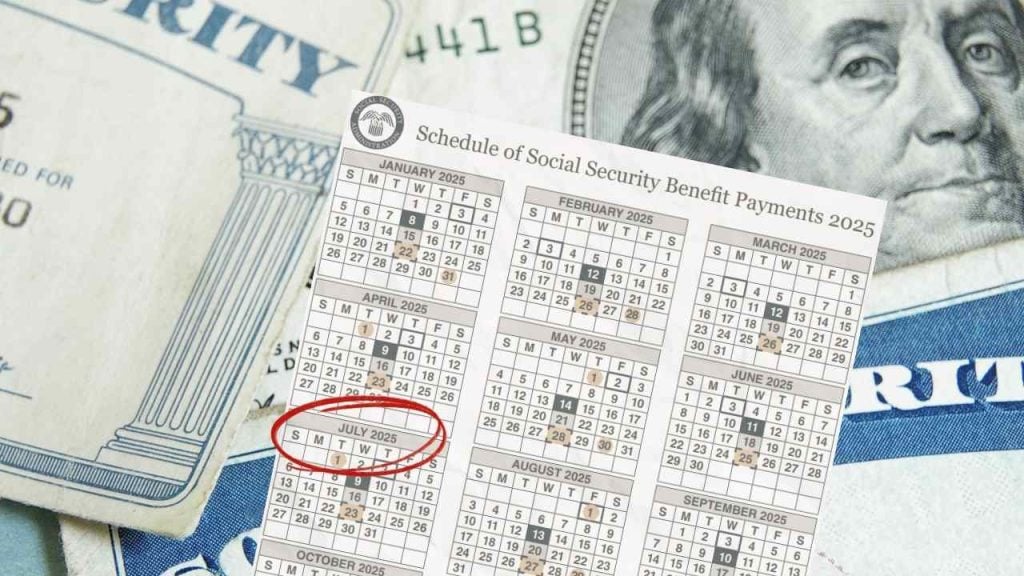The tiered retirement benefit payment system isn’t random. The Social Security Administration (SSA) implemented it several decades ago to avoid bottlenecks in processing millions of transactions. Think for a moment about the chaos it would cause if all beneficiaries received their money on the same day: the banking system would collapse, and there would be inevitable delays.
Furthermore, this method allows for better management of funds and reduces errors. If you’ve ever wondered, “Why do I get paid on the second Wednesday and my neighbor on the third?”. Now you know: it all depends on when you blow out your birthday candles
That is so, particularly for those beneficiaries who claimed their payments after May 1997, when the system was implemented.
What happens to Social Security payments if payday falls on a weekend or holiday?
Although there are no holiday changes in July, it’s helpful to know how the calendar works in other months. For example:
- If payday falls on a Saturday or Sunday, the deposit is advanced to the previous Friday.
- If it falls on a federal holiday, it also moves to the previous business day. There’s no need to worry about adjustments this month, but keep this in mind for August (when Labor Day could affect federal or state holidays).
The Social Security system divides retirement payments into three dates based on the main recipient’s birthdate. This month, deposits will arrive on Wednesdays, July 9, 16, and 23. They are distributed as follows:
- Wednesday, July 9: If your birthday falls between the 1st and 10th of the month, this will be your payday.
- Wednesday, July 16: For those born between the 11th and the 20th.
- Wednesday, July 23: If your date of birth is between the 21st and the 31st, this will be your turn.
What about the other July payments? (SSI, expats, combined benefits recipients)
In addition to retiree deposits, there are two additional dates you should be aware of:
- SSI (Supplemental Security Income) recipients received their money on Tuesday, July 1. This benefit, intended for low-income seniors and people with disabilities, is always paid on the first day of the month. Since it falls on a Tuesday this year, there were no adjustments to the calendar.
- Special payment for older beneficiaries, expats, or those with combined benefits received their money on Thursday, July 3. If you began receiving Social Security before May 1997, your payment just arrived on July 3, regardless of your date of birth. This is the same date for those receiving combined SSI pensions, or those receiving pensions while living abroad.
How do I check if my payment is on its way?
If you want to confirm the status of your deposit, you have two options. My Social Security account at ssa.gov. There you can view your payment history, future estimates, and even download receipts.
Or, just call 1-800-772-1213 (support in English, Spanish, and other languages). If you prefer to speak with a representative, avoid peak hours (such as mornings) to avoid waiting for hours.
In 2025, maximum Social Security retirement payments depend on retirement age. Those who retire at full retirement age (67 for those born in 1960 or later) can receive up to $4,018 per month. If they delay claiming until age 70, the maximum benefit reaches $5,108 per month, assuming 35 years of maximum contributions at the taxable income threshold ($176,100 in 2025).
On the other hand, those who retire too early, that is, at age 62, can receive up to $2,831 per month. These figures include the 2.5% cost-of-living adjustment (COLA) for 2025.
